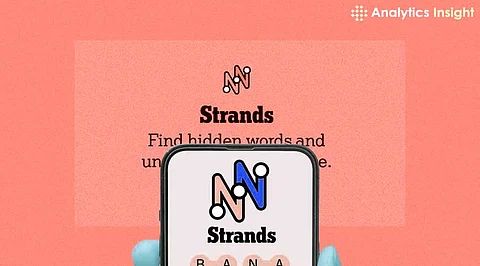

The New York Times has always provided its readers with engaging and thought-provoking content. Comes no exception to its foray into interactive puzzles. NYT Strands, launched in March 2024 has become one of the Times’ finest offerings that have quickly become a favourite game, for both puzzle aficionados and casual players. This article takes a look at what makes NYT Strands a novel addition to the Times’ puzzle arsenal.
NYT Strands is a word association puzzle game where players need to create a strand from seemingly unrelated terms according to what themes might be hidden in each word. The game is easy, yet mentally taxing, and mostly, fun for the masses. In it, the players are shown a grid of words which they need to group into themed clusters. But every cluster has a connection that unfolds like the solving of a mini mystery when one finds out.
The simplicity of the game’s idea is balanced out by the massive complexities of carrying it out. NYT Strands has proved to be a favourite among those looking for brain food as well as a little bit of relaxation.
Here are five quick tips for playing NYT Strands:
1. Start with Common Prefixes/Suffixes: Look for common parts of words like "ing," "ed," or "un" to form easy connections.
2. Find Small Words First: Identify smaller words to build up to larger ones and clear out simple solutions.
3. Focus on Unused Letters: Pay attention to leftover letters, as they often reveal harder-to-spot words.
4. Look for Letter Patterns: Search for double letters or repeating consonants to unlock possible word combinations.
5. Take Breaks: Step away if stuck, then return with fresh eyes to spot new word possibilities.
Today’s words are associated with winter soupy meals.
Look for words describing the ingredients of a soup bowl.
In the New York Times' word game Strands, a spangram is a pivotal word that encapsulates the puzzle's theme and spans from one edge of the 6x8 letter grid to the opposite edge. Unlike traditional word searches, words in Strands can twist and turn in any direction, making the spangram a central element that often provides insight into the puzzle's overall theme.
1. Understand the Theme: Each Strand's puzzle is built around a specific theme, provided as a clue. Grasping this theme is crucial, as the spangram directly relates to it. For instance, if the theme is "Keep It Classical," anticipate words associated with classical music.
2. Identify Edge-Spanning Words: The spangram stretches between two opposite edges of the grid. Focus on letters located along the grid's borders and attempt to form words that connect these edges.
3. Utilize Hints Wisely: If you identify three words unrelated to the puzzle, the game offers a hint option. These hints can provide valuable insights into the spangram's location or the theme, guiding you toward the correct solution.
4. Practice Pattern Recognition: Regular engagement with the game will enhance your ability to recognize word patterns and improve your proficiency in identifying spangrams.
January 02 NYT Strands Spangram is: Vertical.
January 02 Spangram is ChickenSoup.
NYT Strands is now added to a list of New York Times games that include crosswords, spelling bees, and connections. Of course, each game is nice in its way, however, Strands makes sense with its consideration of interconnected word associations and themes. While the Crossword challenges a contestant in terms of comprehensive and detailed understanding of words’ meanings, NYT Strands grows out of one’s ability to think out of the box. This has enabled it to occupy a special market segment among other puzzle companies in the market.
If made this far, it only means one thing and that’s looking for answers. So, scroll down to know the word list for today.
1. Stock
2. Celery
3. Onions
4. Carrots
5. Noodles
6. Pepper
7. Chicken Soup
NYT Strands has achieved the proposed goal of making the word puzzle game both simple and intellectual, so that as many people as possible would find it interesting. It has a uniqueness that makes it engaging and fun it helps to bring out a new perspective and have fun by doing so. Regardless if as a coffee break or part of a day’s puzzle, it remained to be providing fun and brain workouts to so many.
Word game lovers will be pleased to know that NYT Strands is not just another type of puzzle; instead, it’s quite an entertainment that will guide you through the world of word connections.
